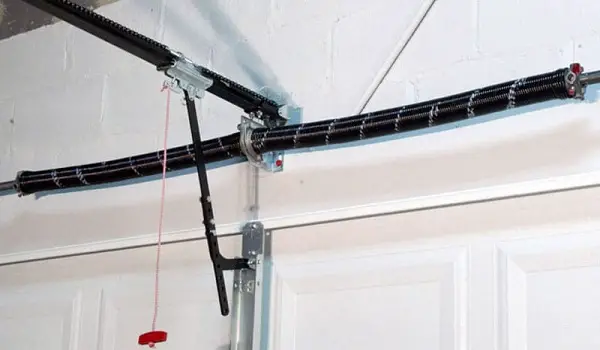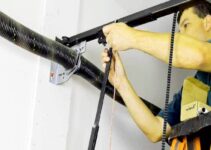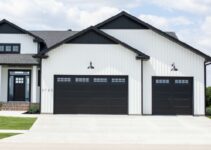Garage doors play an essential role in providing security and convenience to our homes, but they rely on a complex system of components to function properly.
Among these components, garage door springs stand out as crucial elements responsible for the smooth operation of the door. However, despite their durability, garage door springs are not immune to wear and tear, and over time, they can break.
In this article, I’ll share with you the most common causes of garage door spring breakages, as well as some tips on how to prevent them.

Wear and Tear
Just like any other mechanical part, garage door springs experience wear and tear over time due to the repetitive opening and closing of the garage door.
These springs are typically constructed from steel, a robust material that can withstand substantial force. However, the cumulative stress from thousands of cycles gradually weakens the steel, causing it to lose its elasticity and eventually break.
On average, a garage door spring is designed to endure around 10,000 cycles, translating to approximately 10 years of usage for the average household.
Rust
Rust is another significant contributor to the breakdown of garage door springs. The formation of rust is initiated by the presence of moisture, and garage door springs that are not adequately galvanized or are located in environments with high humidity levels are more susceptible to rust formation.
As rust develops, it weakens the structural integrity of the spring, making it more prone to fracture. Regular maintenance, including proper lubrication and protective coatings, can help mitigate the impact of rust on garage door springs.
Improper Maintenance
Maintenance is a critical aspect of extending the lifespan of garage door springs. Failing to inspect and maintain these springs regularly can lead to premature breakage.
Routine inspections by qualified professionals allow for the identification of potential issues such as rust, wear, or misalignment.
Lubrication is also essential to reduce friction and prevent the degradation of the spring’s material. Neglecting these maintenance tasks can result in unnecessary stress on the springs, ultimately leading to their failure.
Overloading
Garage door springs are meticulously designed to lift a specific weight in accordance with the door’s size and configuration.
Exceeding the recommended weight limit places undue strain on the springs, causing them to weaken and eventually break.
Overloading can occur when homeowners add heavy accessories to the door, such as insulation panels or decorative elements, without considering the impact on the springs. Additionally, an imbalanced garage door or a malfunctioning opener can also contribute to overloading the springs.
Defective Springs
While rare, the possibility of receiving a defective garage door spring exists. Manufacturing defects or material inconsistencies can compromise the strength and resilience of the spring, leading to early breakage. If homeowners suspect that their garage door spring might be defective, it’s imperative to seek assistance from a qualified professional.
Attempting to address a defective spring without the proper knowledge and tools can result in safety hazards and further damage.
Preventing Garage Door Spring Breakage
To ensure the smooth functioning and longevity of garage door springs, homeowners can implement the following preventive measures:
- Regular Professional Inspection: Engage the services of a qualified professional to conduct routine inspections and maintenance on the garage door springs. Professionals can identify potential issues early on and perform necessary repairs or replacements.
- Mindful Loading: Avoid overloading the garage door with excessive weight that exceeds the spring’s capacity. Ensure that any modifications or additions to the door are within the recommended weight limits.
- Gentle Operation: Operate the garage door with care, avoiding forceful opening and closing actions that could strain the springs. Opt for a controlled and steady operation to reduce stress on the components.
- Rust Prevention: If the garage is located in a humid or wet environment, consider installing galvanized springs or applying rust-resistant coatings to existing springs to protect them from corrosion.
Conclusion
Garage door springs are essential components of a well-functioning garage door system, and their proper maintenance and care are paramount to their longevity. By understanding the factors that contribute to spring breakage, homeowners can take proactive steps to prevent premature failures.
- The most common causes of garage door spring breakage are wear and tear, rust, improper maintenance, overloading, and defective springs.
- To prevent garage door spring breakage, homeowners should:
-
- Have their springs inspected regularly by a qualified professional.
- Avoid overloading the garage door.
- Operate the garage door with care.
- Apply rust-resistant coatings to the springs.
It is important to remember that garage door springs are under a lot of stress, and they can break suddenly and without warning. If you suspect that a spring is broken, it is important to have it repaired or replaced immediately by a qualified professional.
By following these tips, homeowners can help to ensure the longevity and safety of their garage door springs.


